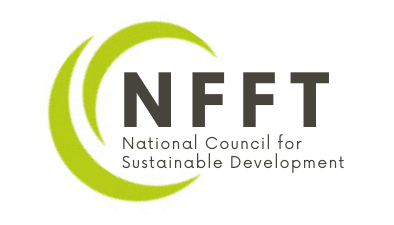SDG - NCSD
The UN’s Sustainable Development Goals through the National Framework Strategy on Sustainable Development
The UN’s Sustainable Development Goals through the National Framework Strategy on Sustainable Development
A decision on the Sustainable Development Goals building upon and representing continuation of the Millennium Development Goals designed to address global issues was adopted at the Rio+20 Conference on Sustainable Development in 2012. The United Nations worked together with governments, the scientific community and the civil society to develop the post 2015 agenda for sustainable development. Csaba Kőrösi (former permanent representative to the UN and currently regular attendant of the Board Meetings of the National Council for Sustainable Development) played a key role in this successful collaboration having co-chaired the Open Working Group tasked with drafting the UN’s global goals with Macharia Kamau.
As a result of their efforts, the 193 member states of the United Nations adopted the 2030 Agenda for Sustainable Development including 17 goals and 169 targets on 25th September 2015.
The 17 universal goals include a total of 169 targets. The targets comprise content, material and institutional targets. Material targets define what is considered as a sustainable state or what progress needs to be made. Institutional targets determine the institutional or competence criteria required to achieve progress or ensure sustainability. These latter ones mostly reflect on the poorest or developing countries. These also primarily include targets for developed countries allowing them to contribute to improving the institutional competences of developing countries, e.g. by financial or technical assistance or technology transfers.
Csaba Kőrösi stressed that a sustainable future is only possible if the problems are addressed in a manner that does not risk the survival of future generations. He also added that the goals may only be achieved based on a collaboration of governments, the civil society, the scientific community and the business sector as this is the only way to replace an unsustainable pattern by a sustainable one.
In relation with the goals, he said that Hungary as leader of the negotiations took a neutral stance, the final goals meet the Hungarian criteria. This is demonstrated by the strong correlation between the National Framework Strategy on Sustainable Development (NSSD) and the UN’s Sustainable Development Goals. NSSD defines 34 strategic goals and 77 associated tasks (targets) for the four national resources. In Hungarian public policy, NSSD’s scope includes strategic planning and actions for sustainability while support to developing countries and implementation of the objectives of universal development is part of our foreign affairs and foreign trade policy.
Consequently, the implementation of the SDGs in Hungary requires parallel, logically independent but correlated action of two areas (sustainability and foreign affairs and trade).
Setting the foreign affairs and trade related targets aside, the remaining SDG goals and targets will be compared with the set of NSSD’s drivers, goals, indicators and tasks below.
Logically, SDG 14 (conserve and sustainably use the oceans, seas and marine resources for sustainable development) is irrelevant for Hungary. The relevant universal goals may also include targets that Hungary is not required to address, for example because we have already outperformed the specific goal (e.g. neonatal mortality) or the problems related to a specific target are marginal in Hungary (road traffic accidents cause a very low number of deaths).
Our analysis shows that out of the SDGs’ 169 targets – after separating foreign affairs, development cooperation, institutional development (58 targets) and identifying irrelevant targets (28 targets) – 83 targets remain in the scope of the NSSD (49% of all targets). The sustainability policy relevance of these targets will require further analysis but preliminary findings suggest a relatively good correlation between NSSD’s goals/tasks and the 83 SDGs relevant in Hungary.
The accomplishment of NSSD’s goals are further accentuated by the global relevance of their implementation.

